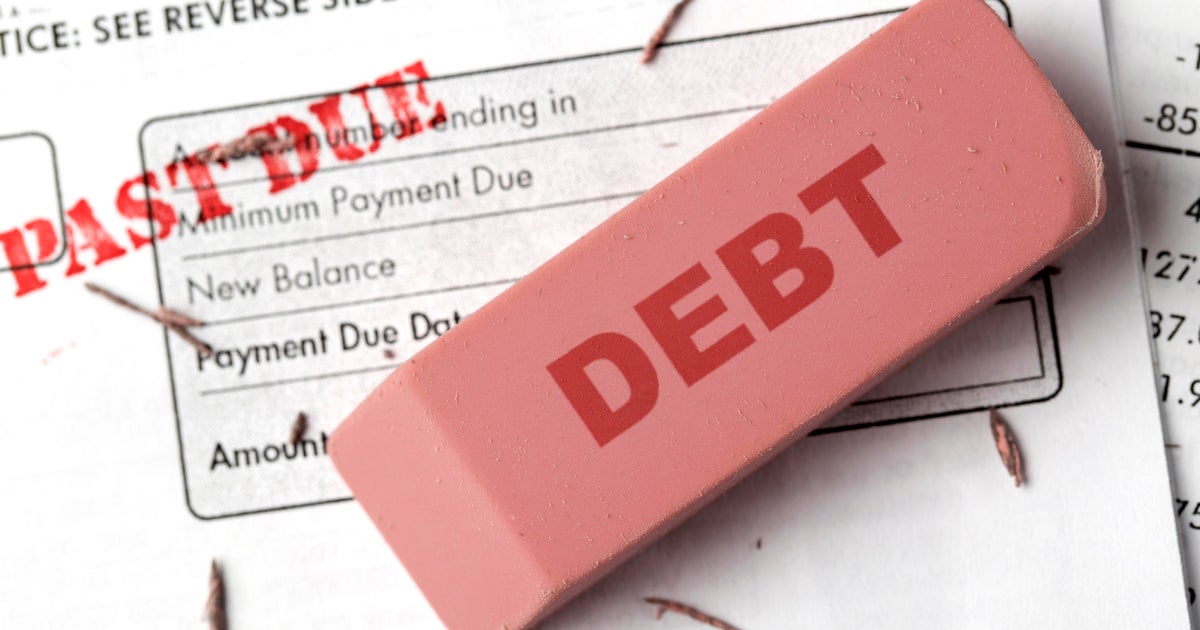Debt firms used social media to "smear" and harass people, feds say
A group of debt collectors in upstate New York went after their targets by calling friends, family and employers and orchestrating "smear campaigns" against people they claimed owed money, federal regulators said.
The Consumer Financial Protection Bureau and the New York Attorney General on Monday said they shut down a ring of debt collection firms who were going after debtors using illegal techniques. Since 2015, these companies engaged in what one target called "emotional terrorism," calling friends, family members and employers to put pressure on people who owed money, according to a lawsuit filed in 2020 and settled this week for $4 million.
The companies were owned by Christopher Di Re, Scott Croce and Susan Croce, and managed by Brian Koziel and Marc Gracie, according to the settlement. The companies shared a single address in Getzville, New York, and operated under many names: JPL Recovery Solutions; Regency One Capital; ROC Asset Solutions; API Recovery Solutions and Northern Information Services; Check Security Associates; Warner Location Services; Pinnacle Location Services; Orchard Payment Processing Systems; Keystone Recovery Group and Blue Street Asset Partners.
Targeting people's social circle
In seeking to collect on payday loans and other debts, these companies adopted an unusually aggressive — and illegal — strategy of targeting alleged debtors' friends and family to pressure the person, regulators said.
First, the debt collectors identified a debtor's social circle, including "immediate family members, grandparents, distant family members, in-laws, ex-spouses, employers, work colleagues, landlords, Facebook friends and other known associates," the complaint said.
The collectors then called these people under the pretext of trying to find the debtor, while letting their friend or family member know that the person owed money, the complaint said.
"The Debt-Collection Operation does this to 'stir the pot,' so that the third parties start calling the consumer. Thus, the consumer's family, friends, and colleagues can serve as the collector's 'army,' pressuring the consumer to address the collector's demands," the complaint said.
"Consumers have described these tactics as 'smear campaign[s],' 'extortion,' 'terrorist collecting tactics,' and 'emotional terrorism,'" according to the lawsuit, which said that many targets were worried that getting collection calls at work would jeopardize their jobs.
The debt collectors named this strategy "Circles," since it put the debtor at the bull's-eye of a social circle. Managers compared the tactic to repossessing a car, according to the complaint:
"If I buy a car and I don't pay for it ... they take the car. If I don't pay for my house, they take the house ... [W]e're taking [their] pride," the debt collectors said, according to the complaint.
Illegal tactics
It's illegal for a debt collector to reveal someone's debt to third parties or to keep calling after a person asks them to stop. CFPB Director Rohit Chopra compared such means to extortion, saying in a statement: "It is illegal for debt collectors to orchestrate smear campaigns using social media to extort consumers into paying up."
A database of complaints consumers submitted to the CFPB shows that, in some cases, debt collectors from these companies left multiple messages a day with family members and former friends.
"They have called my family and said I am a criminal in a case and they need to get a hold of me," one person told the CFPB in 2016.
Another wrote, "They are contacting people from years past, ex-inlaws, ex-spouses, etc ... PLEASE STOP THEM. I have people I knew 25 years ago trying to contact me about them calling them."
In addition to harassment in pursuing their targets, these debt collectors broke plenty of other laws, regulators say. They would sometimes tell debtors they owed much more than they actually did "in order to convince them that paying the amount they actually owe represents a substantial discount," according to the CFPB. They also threatened people with legal action that they never pursued and told debtors they would be arrested and imprisoned if they didn't pay up, the complaint says.
Under the terms of the settlement, which must be approved by a court, the companies and their owners and managers are permanently banned from the debt collection industry. They will also pay a $2 million penalty to New York's Attorney General and $2 million to the CFPB for a victim relief fund. They did not admit or deny wrongdoing.
Debt collection is a persistent source of frustration for consumers, with the CFPB last year receiving 121,000 complaints on the topic — about 12% of its overall complaints.



